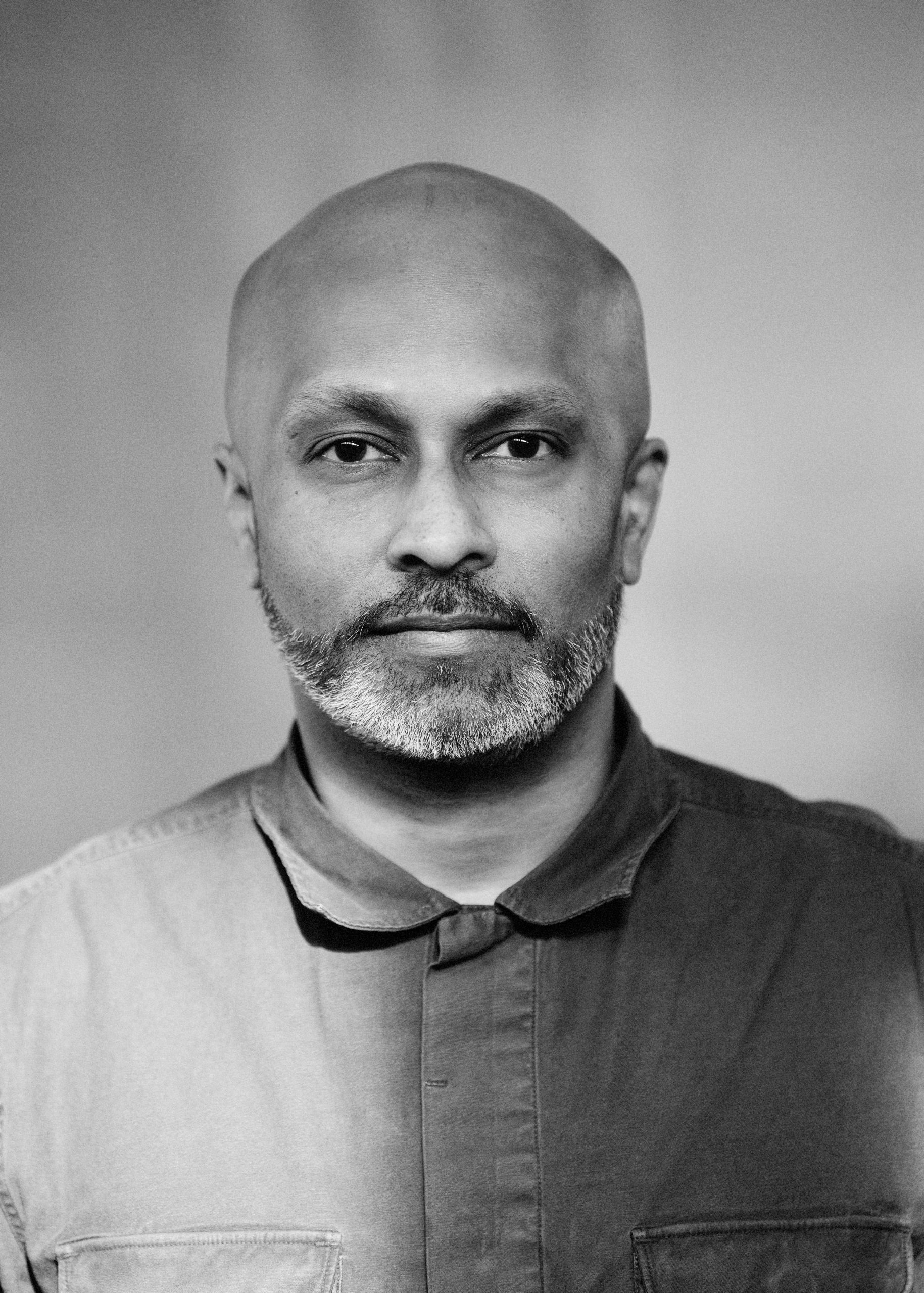Akram Khan
Akram Khan is one of today’s most celebrated and respected dance artists. Over the past twenty years the British-Bengali dancer and choreographer has created an oeuvre that has made a major contribution to dance art in the United Kingdom and beyond. His first full-length production, Kaash (2002) – which Introdans will proudly be including in its repertoire in the 2020/2021 season – was an absolute sensation and made Khan world-famous overnight. Both audiences and critics were wowed by his attractive looks, his powerful stage personality and his extraordinary choreographies which were genuinely new – fresh, subtle and overwhelming.
Kathak
It was actually a coincidence that Khan (born in London, 1974) ended up in the modern dance circuit when he was twenty, although he had been dancing almost his entire life. “At the age of three my mother enrolled me in a course for Bengali folk dance because she wanted me to keep touch with her culture, and also because I was hyperactive. Four years later – also because she wanted it – I started training kathak dance intensively, one of the seven classical Indian dances.”
Khan grew into one of the best kathak dancers in the world, and he might still be that today if, after finishing school, he hadn’t felt pressure from the Bengali community to start studying. “Asians are really keen on academic titles and since I didn’t feel like studying medicine or law, I enrolled for a course of studies in modern dance.” This turned out to be a revelation: “It was all totally unfamiliar to me: the audition, the dance videos of Pina Bausch and DV8 that I borrowed from the library the same day. I was shocked and also happily amazed to see what was possible with dance.”
The body as museum
During his course of studies Khan began combining both forms of dance – kathak and modern dance. “Not consciously. But after a while I discovered that my kathak was no longer pure kathak and that my modern dance wasn’t pure modern dance. This to the great frustration of both my teachers and, to begin with, of me as well. Until I accepted it, and realised that the body is a museum: it contains a lot of history, but also continues to collect new acquisitions. It’s pointless trying to deny your background.”
Khan was discovered by the English dance production company Dance Umbrella, after which he created several successful solo productions and was then invited to a choreography project by P.A.R.T.S., the training institute set up by the Belgian choreographer Anne Teresa De Keersmaeker. It was there, in 2000, that he decided to start his own group: the Akram Khan Dance Company. From that moment on, things moved fast. In almost no time at all the company was appearing at international dance festivals alongside icons such as William Forsythe, Alain Platel, Pina Bausch and Nederlands Dans Theater.
Olympic Games
Khan is an Associate Artist at Sadler’s Wells in London, the Mountview Academy of Theatre Arts in London and Curve Theater in Leicester. He has worked with many top dancers and choreographers for his productions, such as Sidi Larbi Cherkaoui and Israel Galván, star ballerina Sylvie Guillem, actress Juliette Binoche, pop star Kylie Minogue, composers Steve Reich, Nitin Sawhney, Jocelyn Pook and Ben Frost and celebrated visual artists such as Anish Kapoor, Antony Gormley and Tim Yip.
Besides Kaash, his most important works include Zero Degrees (2005), Gnosis (2010), Vertical Road (2010), DESH (2011), iTMOi (in the mind of igor) (2013), TOROBAKA (2014), Until the lions (2016), XENOS (2018) and Outwitting the Devil (2019), as well as his first full-length ballet, a contemporary interpretation of Giselle made for the English National Ballet in 2016. A further milestone was his creation of part of the opening ceremony for the Olympic Games in London in 2012.
Intimate and epic
Khan’s work is recognised as being deeply moving, whereby his intelligently created ‘dance stories’ effortlessly manage to be simultaneously intimate and epic. This has brought him many prestigious awards, including two Laurence Olivier Awards, a Bessie Award, the International Society for the Performing Arts Distinguished Artist Award, the Fred and Adele Astaire Award, the Herald Archangel Award, the South Bank Sky Arts Award and eight Critics’ Circle National Dance Awards.
